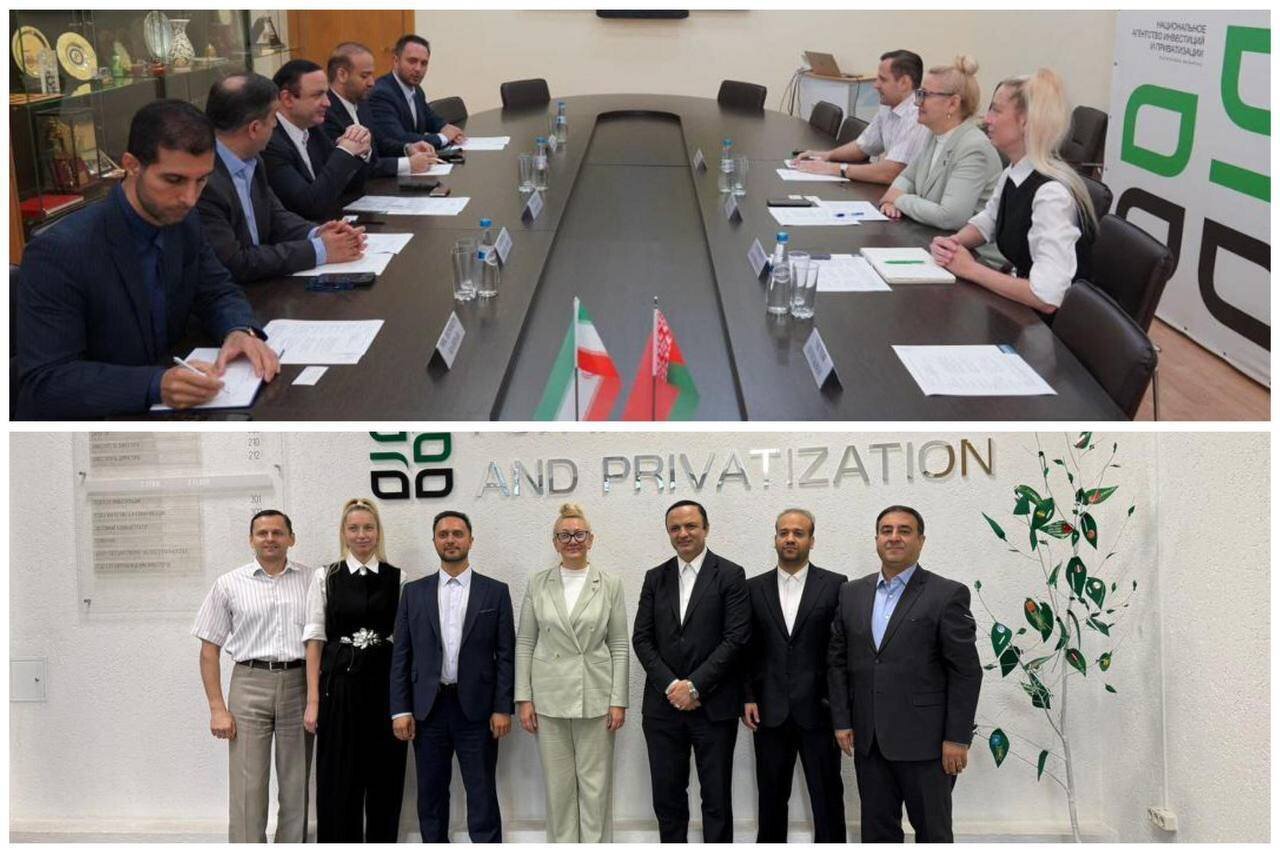Belarus views industrial cooperation with Iran as promising

TEHRAN- Belarusian Industry Ministry places great importance on the development of mutually beneficial cooperation between Belarus and Iran, Belarusian Industry Minister and Co-chair of the Belarusian-Iranian Intergovernmental Commission on Economic Cooperation Andrei Kuznetsov told BelTA on the sidelines of the high-level talks between Belarus and Iran at the Palace of Independence in Minsk on August 20.
“We highly value the achieved level of interaction and see significant potential for further expansion of bilateral ties. The Industry Ministry is ready to offer Iranian partners a wide spectrum of opportunities for deepening our industrial partnership,” Andrei Kuznetsov said.
The minister highlighted specific areas of joint work that demonstrate a commitment to long-term and productive interaction between the two states.
For instance, the establishment of assembly production for Belarusian harvesters would integrate the technologies of the Belarusian mechanical engineering industry into Iran's economy and create a local enterprise for assembling high-quality agricultural machinery. This would reduce logistics costs and provide the local market with access to the advanced technologies of the Belarusian agricultural industrial complex. The minister noted that work in this direction has already begun.
Belarus eyes access to open seas through Iran’s free trade zones
Belarus could gain access to open waters via Iran’s free trade zones, officials from the two countries said during talks on expanding investment and transit cooperation.
Alena Perminova, head of Belarus’s National Agency of Investment and Privatization, met Reza Masrour, secretary of Iran’s Free and Special Economic Zones High Council, to discuss new avenues for collaboration.
Perminova said a cooperation agreement signed between her agency and Iran’s free zone secretariat was aimed at boosting joint projects.
She stressed Belarus’s interest in building partnerships with Iran’s free zones, saying the two countries could meet many of each other’s needs through investment and re-exporting goods. “We are committed to implementing the framework of this agreement and creating more opportunities for cooperation,” she said.
Perminova noted that Belarus’s free trade zones were established to stimulate provincial development and commercial dynamism, and added that Minsk was ready to pursue serious joint projects with Tehran.
Masrour said Belarus could use Iran’s ports to bypass its landlocked geography and sanctions-related restrictions.
He cited the Caspian route from Makhachkala in Russia to Iran’s Caspian Port as a corridor that could provide Belarus with maritime access. In return, he said Belarus could enhance Iran’s entry into the Eurasian Economic Union’s 180-million-strong market.
“Both Iran and Belarus face unjust economic sanctions,” Masrour said, adding that the measures had restricted Belarus’s traditional access to Baltic ports in Lithuania and Latvia. “Iranian ports can serve as an alternative.”
The official also pointed to Iran’s role in the International North–South Transport Corridor (INSTC), saying Belarus could secure vital export routes for its potash fertilizers, agricultural products and other goods to Arab countries, Africa and beyond via Iranian free zones.
The talks also covered cooperation in tourism, high-tech industries, the digital economy, logistics, and organizing joint investment exhibitions.
EF/MA
